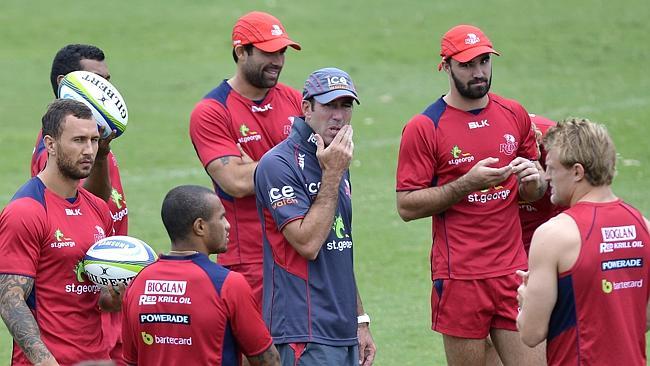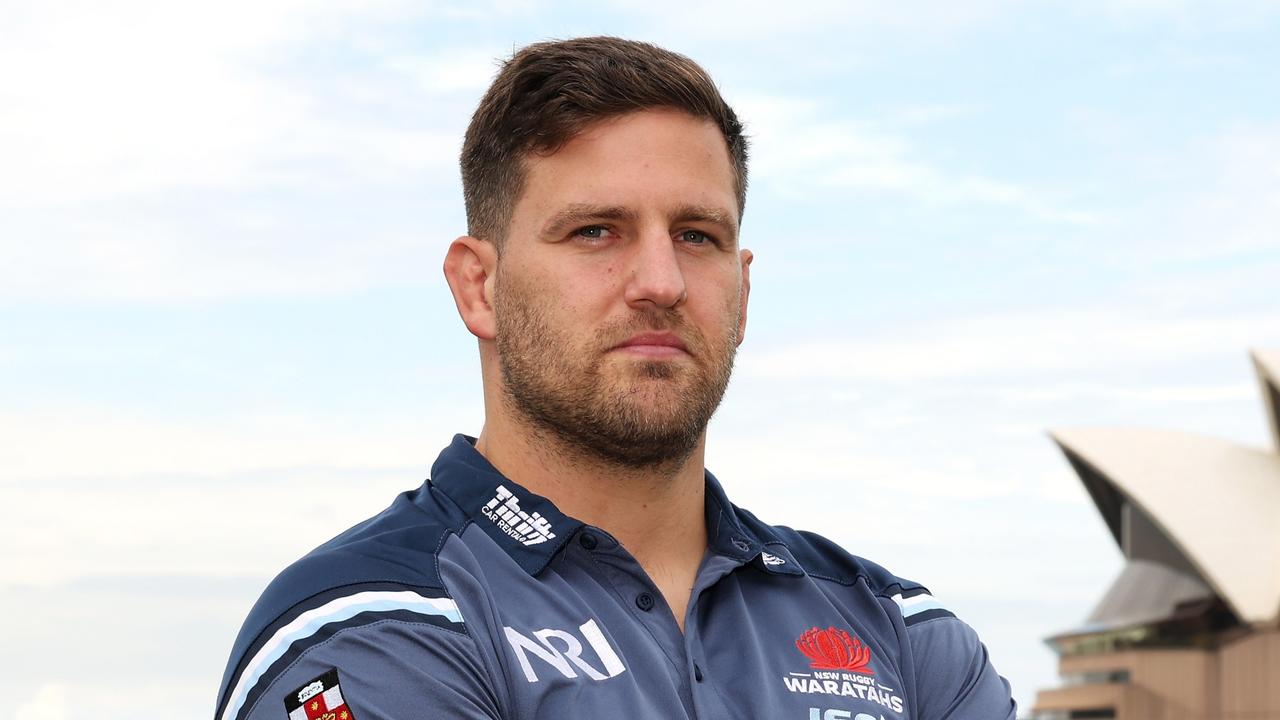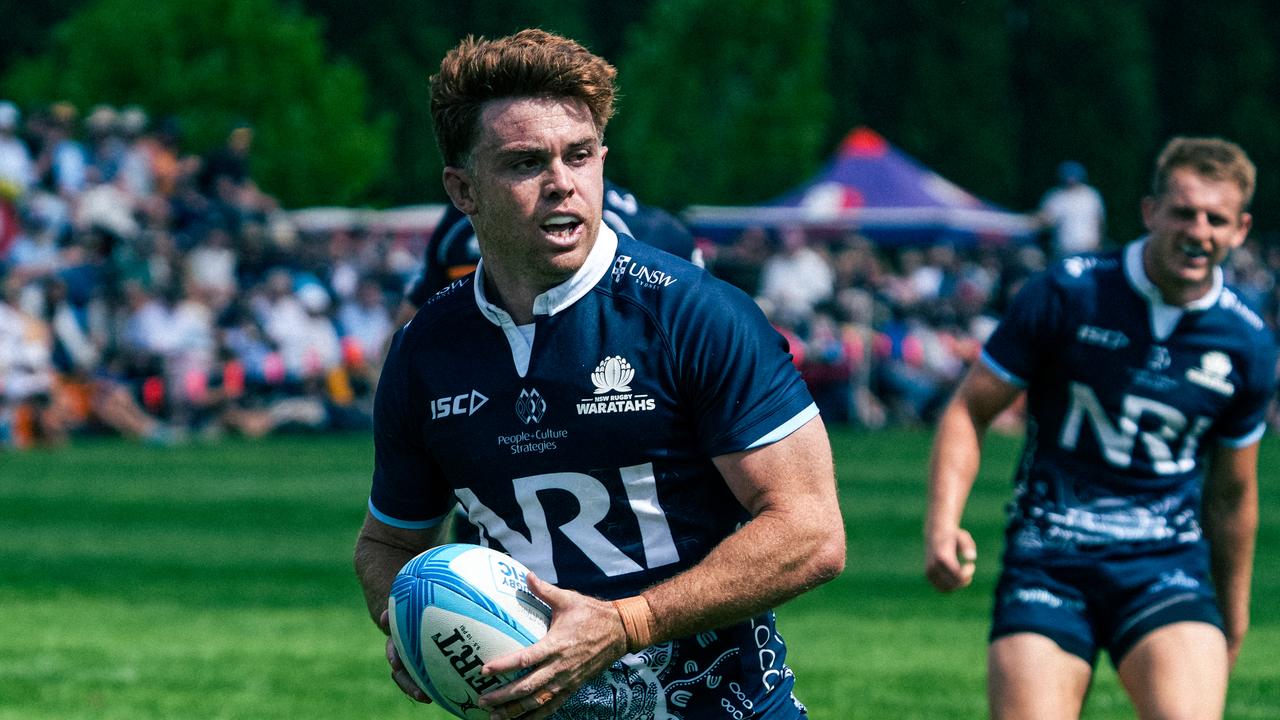An expanded Super Rugby competition will sting Aussie franchises financially
SANZAR boss Greg Peters has indicated Australian franchises will lose financially vital local derbies in an expanded Super Rugby competition.

Rugby
Don't miss out on the headlines from Rugby. Followed categories will be added to My News.
SANZAR boss Greg Peters has indicated struggling Australian franchises will lose financially vital local derbies under the expanded new Super Rugby competition.
But Argentinian rugby icon Gus Pichot has urged SANZAR unions to see the long-term benefits of green-lighting a new seventeen or 18-team competition.
“We have to think big,” Pichot told the Daily Telegraph. “At the end of the day you have to think 10 years or 15 years time and see the potential. You have to have that vision.
“I feel sure the guys running rugby in Australia and New Zealand and South Africa are looking at that. I really do.”
A “preferred” tournament model for 2016 is currently being weighed up by member unions after the addition of a side from Argentina and a sixth South African team was agreed to by the SANZAR executive committee Thursday.
It is understood the expansion may not stop there, however, with an Asian team being sourced as an 18th side. Remarkably, insiders say a Singapore consortium is firming as a bolter ahead of Japan and Hong Kong.
Given the current conference system would fold with an unwieldy 17 teams, a balanced eighteen teams could see Australia and New Zealand maintain five each, and two four-team conferences made out of the six South Africans sides, Argentina and the Asia side. Preliminary “east” and “west” playoffs may even occur before four teams play in the overall Super Rugby finals.
Whether the proposed changes are approved by ARU stakeholders, however, remains to be seen.
There is deep concern among the states that the new competition structure will cut down their guaranteed four local derby home fixtures, which are relied upon heavily for revenue, and often, to simply break even.
Brumbies chairman Sean Hammond said last week the ACT side would be in a financial hole if local derbies are scrapped in the future.
But a 17-team or 18-team competition in the same time frame — New Zealand don’t want extra games — would see Australian teams lose, at best, two local derbies per year.
“No-one gets 100 per cent of what they want,” Peters said.
“We run a joint venture and like in any marriage, you have to compromise. They are dramatically different markets, and you can’t satisfy all of one market’s strategic imperatives. It’s a balancing act.
“Under the structure we are putting back to the national unions, we have tried to accommodate a little bit of what everyone wants. There is a contrary view to derbies in South Africa, and in some elements of New Zealand as well.
“South Africa is very much saying “we play each other home and away in Super Rugby and we play each other in Currie Cup as well, and sometimes Vodacom Cup as well”. So it becomes very repetitive.
“The solution will never satisfy everything that everyone wants, but at least components of what people came into this process looking for, they’re going to get out of the solution.”
Less derbies equals more travel but curiously, South Africa want less travel as well. How that is achieved also remains to be seen, as is whether the ARU is encouraged by its members to fight for a model with no reduction in derbies.
It is believed some advocated an east and west division model, where New Zealand and Australia play each other home and away and in playoffs, before meeting the winners of the Africa/America/Asia division.
But Pichot said the key to success for rugby in Australia is global growth.
“It is a question of ambition,” he said.
“I understand bottom lines very well. I understand you have to have a sound business.
“But still for the bigger advantage of rugby. In the terms of thinking big, growing the game in Argentina, Asia and other options, that’s the way to go. I strongly believe in that.
“Rugby needs expanding. If you stay against rugby league, and against Aussie Rules, you will struggle I think.”
An Asian team could help drive up the value of the next broadcast deal but Singapore is not a devoted rugby nation.
“We are certainly looking to drive some more commercial value into this competition, and we think that will be good for everyone,” Peters said.
Peters was coy on the addition of an Asian team, but it is believed expressions of interest have been sought in Asia, and even tentatively in the US and Europe.
“It is no secret we have been exploring other territories as a possibility,” Peters said.
“When we brought in Super Rugby in 2011 and a conference structure, we said at the time that structure allowed you to add teams to conferences or to add conferences to the competition.
“It is an evolution of that concept.”


